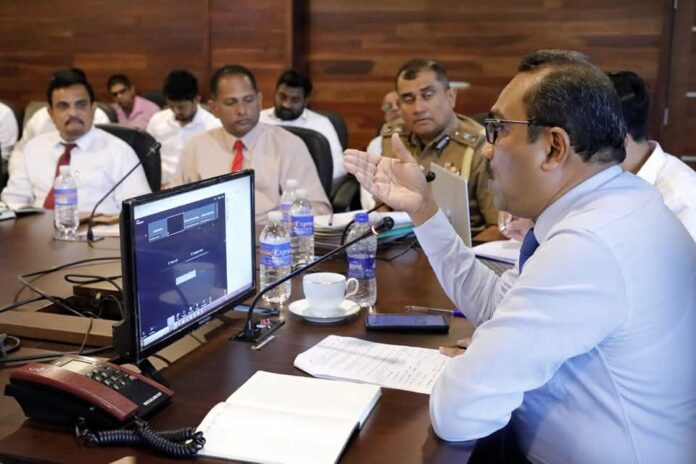April 28, Colombo (LNW): Minister of Transport, Highways, Ports, and Civil Aviation Bimal Rathnayake recently convened a crucial meeting with the leadership of the National Transport Commission (NTC), the Sri Lanka Transport Board (SLTB), and Provincial Passenger Transport Authorities representing all nine provinces.
The discussions, held amid growing calls for a more efficient and reliable public transport network, led to a series of sweeping reforms aimed at modernising Sri Lanka’s passenger transport sector.
After lengthy deliberations, a number of pivotal decisions were made to address longstanding issues in the system and enhance the quality of service for commuters.
Amongst the immediate initiatives is the introduction of a unified timetable for buses operating along the Puttalam route, intended to reduce confusion and improve punctuality.
Additionally, a pilot project is set to commence on the busy 138 route, where all buses will operate under a single association with a profit-sharing model, a move designed to reduce unhealthy competition and streamline services.
A strong focus has been placed on passenger safety and transparency. The government will make it compulsory for all public buses to be fitted with GPS tracking systems and CCTV cameras, enabling better monitoring of operations and incident response.
In collaboration with the Ministry of Digital Technology, an online ticket booking platform will be developed, offering commuters a more convenient and modern method of securing travel.
Randomised drug and alcohol testing of bus drivers will also be introduced to enhance road safety, and the issuance of tickets via electronic machines will become mandatory, following a brief grace period to allow operators to transition.
Furthermore, new technical standards for passenger buses will be established, and seatbelt use will be made compulsory for drivers.
In a bid to improve the allocation of new bus routes and prevent overcrowding on popular lines, a new mechanism will be created for managing the deployment of buses.
To empower passengers, all buses will soon be required to display dedicated WhatsApp numbers for reporting violations or concerns, with separate contacts for the NTC, SLTB, and each provincial authority.
Rathnayake underscored the importance of swift action, instructing officials to immediately begin the groundwork for these reforms. He also emphasised the necessity of continuous monitoring to ensure that the measures are properly implemented and that they translate into tangible improvements for the travelling public.

